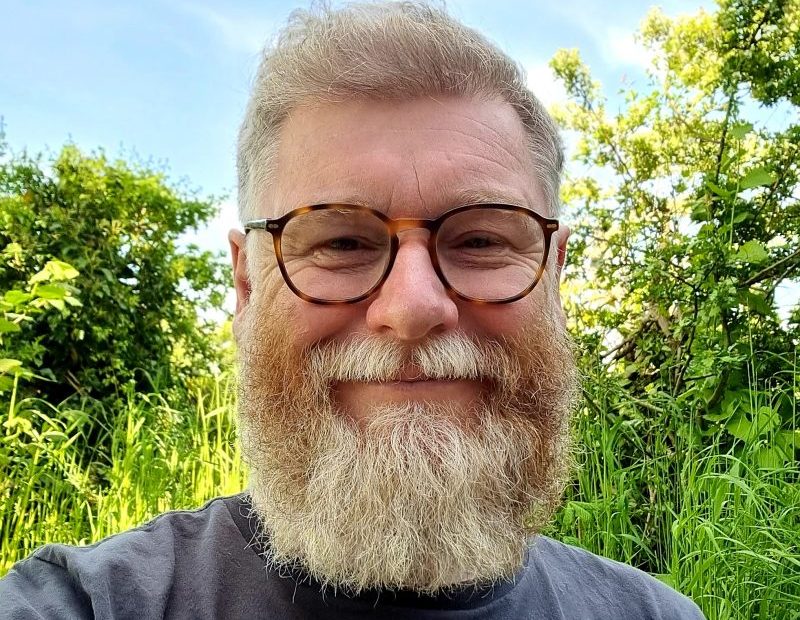SATURDAY 18 MARCH 2023
How it went – write up by Roger Gill
The Lit&Sci website says, ‘We know we’ve got it right when there’s a full house and a buzz of excitement’. That was absolutely true when we experienced an inspirational presentation by Professor Tim O’Brien. This was the last event of the 2022/2023 season for the Lit&Sci and not only was the Waterfront Hall at maximum capacity, but the bristle of excitement, in anticipation of Tim’s talk, was electric.
Following on from some other recent packed events at Hebden Bridge Town Hall, which asked, ‘Do you listen to the Archers?’ or ‘Do you like Whisky?’ this one, in effect, asked, ‘Do you want to hear about Multi-messenger astrophysics and learn about new ways of exploring the universe?’. The answer was a resounding, ‘Yes’ from teachers of physics, physics graduates, students of physics, amateur astronomers, fans of Tim (whatever he chose to talk about), and audience members who, with little prior knowledge, just wanted to hear an expert who, with his wife, had won the 2014 Institute of Physics Kelvin Prize for Public Engagement. Here was someone who not only knew his subject, but could entice you to listen intently and be amazed, as well.
The whole room seemed to warm to him straight away. From the very beginning, when we learned about how Jodrell Bank was linked through the Internet to many other telescopes around the world, he had us hooked. Immediately, here was someone who you would be keen to have as a friend, a brilliant teacher in your school or university, and an expert humble enough to realise that even his knowledge had its limits.
It was clear from the questions put by the audience at the end that those with a great knowledge of the subject had received confirmation from an eloquent mentor. They of course knew all about the wavelengths that were referred to throughout the talk: radio waves, microwaves, infrared, visible light, ultraviolet, x-rays, and gamma rays – and how even the information from these represents a tiny fraction of what is out there in the universe. When he left us with the notion of dark matter and dark energy, minds of the non-physicists in the audience seemed to expand exponentially.
All in all, we were treated to an evening full of stirring ideas intriguing technical language, and wonderfully evocative terms such as, ‘grazing incidence’ which, we found out, is the critical angle that the side of the dish needs to be at to allow x-rays and gamma rays to slide down into the data devouring bowels of a telescope. Beyond that, we marvelled at his pictures of black holes and ideas about what the universe was like 13 billion years ago, not long after the Big Bang. As people left, many seemed to have only one question in their mind: ‘When can he come back and tell us more?’.
Roger Gill 22.3.23.
Modern telescopes are no longer just something you hold up to your eye! They reveal a hidden universe of black holes, exploding stars and distant galaxies. This talk will showcase some of the most spectacular astronomical images and discoveries of recent times using ingenious telescopes around the world and in space.
Tim O’Brien is a Professor of Astrophysics in the Department of Physics & Astronomy at The University of Manchester and an Associate Director of Jodrell Bank Centre for Astrophysics. He is active in research – working mainly on multiwavelength observations and modelling of nova explosions – and undergraduate/ postgraduate teaching.
Professor O’Brien also carries out a wide range of public engagement activities including regular appearances in the media and in events at Jodrell Bank Centre for Engagement and elsewhere. One of his current major public engagement projects is the bluedot festival – a celebration of music, science, technology and the arts – of which he was a co-founder and to which he contributes science content and curation. He is also active in celebrating the heritage of Jodrell Bank including the construction of a major new gallery (part of the First Light project). Prof O’Brien was also a co-author with Teresa Anderson of the proposal leading to Jodrell Bank Observatory being designated a World Heritage Site in 2019.
Away from work, he enjoys (mostly) watching Manchester United and working in his garden in the Peak District, a beautiful part of the world.
